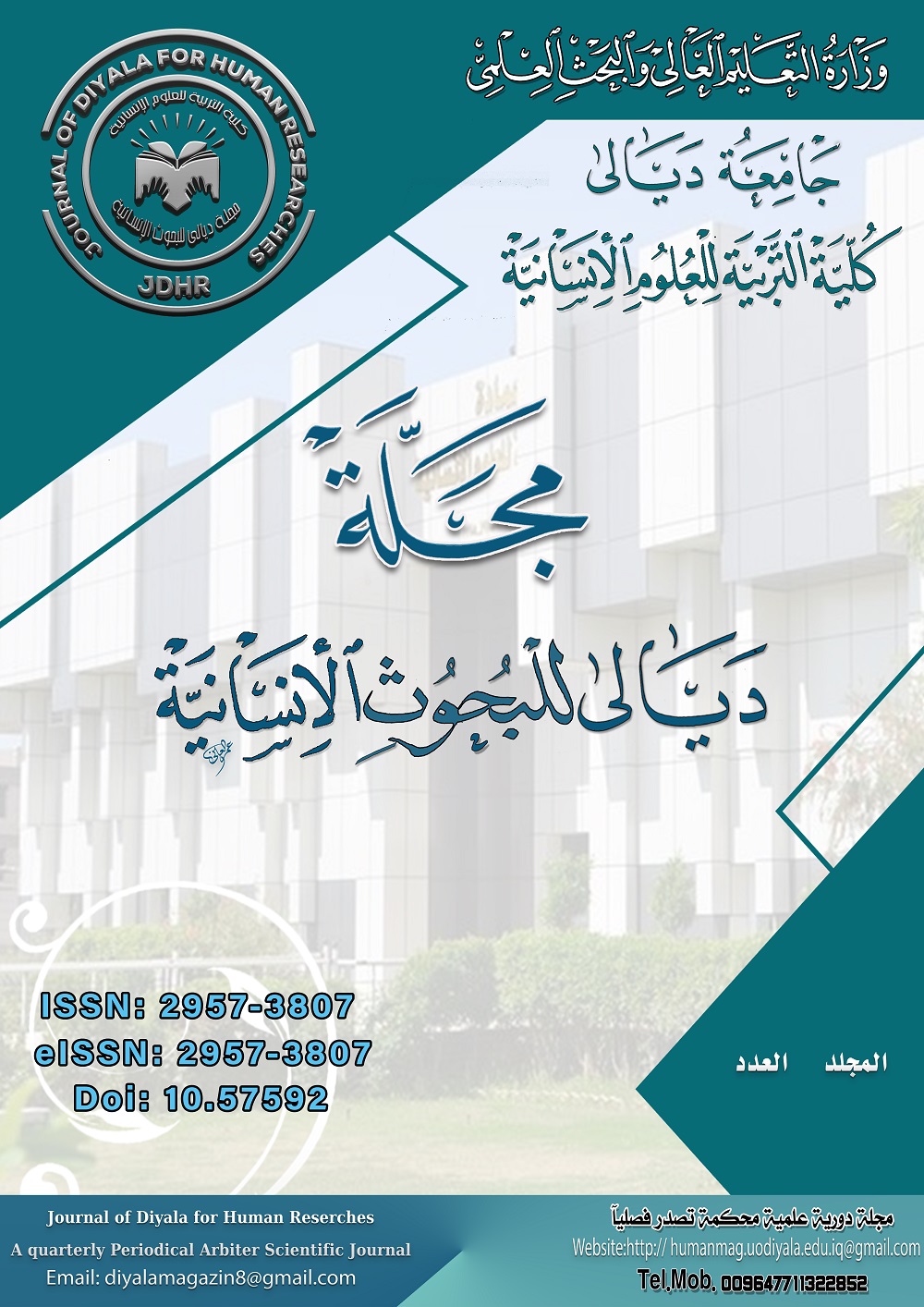التغيُر القيمي وعلاقتهُ بالشخصيةِ الهايكوامباثيةِ و الولاِء الوطني لدى موظفي جامعةِ ديالى
DOI:
https://doi.org/10.57592/j6cde109Abstract
Downloads
Published
2025-09-15
Issue
Section
بحـــــــوث العــــــدد
License
Copyright (c) 2025 ساره سعد حسين ، أ.د. لطيفة ماجد محمود النعيمي

This work is licensed under a Creative Commons Attribution-NonCommercial 4.0 International License.

